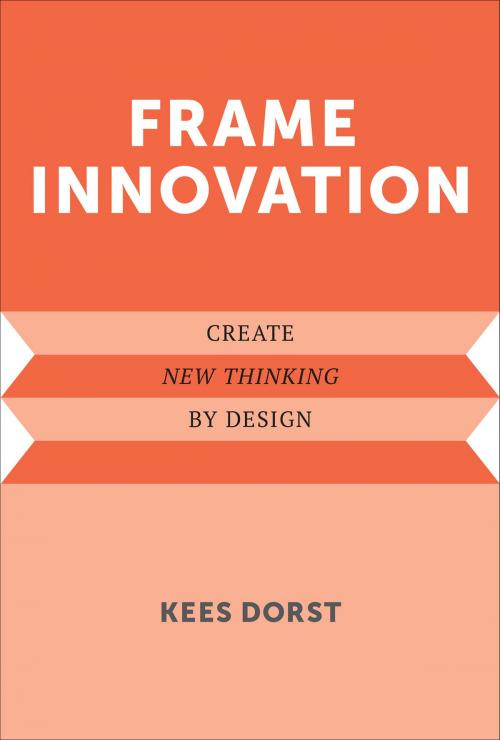Frame Innovation
Create New Thinking by Design
Nonfiction, Art & Architecture, General Art, Graphic Art & Design, General Design, Business & Finance, Management & Leadership, Decision Making & Problem Solving| Author: | Kees Dorst | ISBN: | 9780262328852 |
| Publisher: | The MIT Press | Publication: | April 3, 2015 |
| Imprint: | The MIT Press | Language: | English |
| Author: | Kees Dorst |
| ISBN: | 9780262328852 |
| Publisher: | The MIT Press |
| Publication: | April 3, 2015 |
| Imprint: | The MIT Press |
| Language: | English |
How organizations can use practices developed by expert designers to solve today's open, complex, dynamic, and networked problems.
When organizations apply old methods of problem-solving to new kinds of problems, they may accomplish only temporary fixes or some ineffectual tinkering around the edges. Today's problems are a new breed—open, complex, dynamic, and networked—and require a radically different response. In this book, Kees Dorst describes a new, innovation-centered approach to problem-solving in organizations: frame creation. It applies “design thinking,” but it goes beyond the borrowed tricks and techniques that usually characterize that term. Frame creation focuses not on the generation of solutions but on the ability to create new approaches to the problem situation itself.
The strategies Dorst presents are drawn from the unique, sophisticated, multilayered practices of top designers, and from insights that have emerged from fifty years of design research. Dorst describes the nine steps of the frame creation process and illustrates their application to real-world problems with a series of varied case studies. He maps innovative solutions that include rethinking a store layout so retail spaces encourage purchasing rather than stealing, applying the frame of a music festival to understand late-night problems of crime and congestion in a club district, and creative ways to attract young employees to a temporary staffing agency. Dorst provides tools and methods for implementing frame creation, offering not so much a how-to manual as a do-it-yourself handbook—a guide that will help practitioners develop their own approaches to problem-solving and creating innovation.
How organizations can use practices developed by expert designers to solve today's open, complex, dynamic, and networked problems.
When organizations apply old methods of problem-solving to new kinds of problems, they may accomplish only temporary fixes or some ineffectual tinkering around the edges. Today's problems are a new breed—open, complex, dynamic, and networked—and require a radically different response. In this book, Kees Dorst describes a new, innovation-centered approach to problem-solving in organizations: frame creation. It applies “design thinking,” but it goes beyond the borrowed tricks and techniques that usually characterize that term. Frame creation focuses not on the generation of solutions but on the ability to create new approaches to the problem situation itself.
The strategies Dorst presents are drawn from the unique, sophisticated, multilayered practices of top designers, and from insights that have emerged from fifty years of design research. Dorst describes the nine steps of the frame creation process and illustrates their application to real-world problems with a series of varied case studies. He maps innovative solutions that include rethinking a store layout so retail spaces encourage purchasing rather than stealing, applying the frame of a music festival to understand late-night problems of crime and congestion in a club district, and creative ways to attract young employees to a temporary staffing agency. Dorst provides tools and methods for implementing frame creation, offering not so much a how-to manual as a do-it-yourself handbook—a guide that will help practitioners develop their own approaches to problem-solving and creating innovation.















